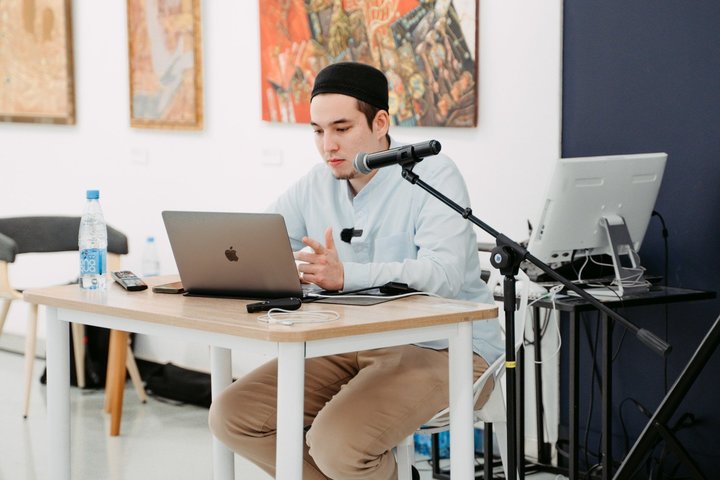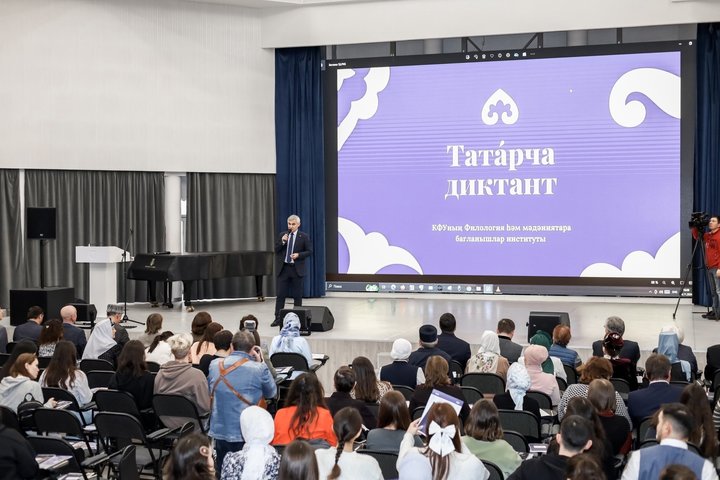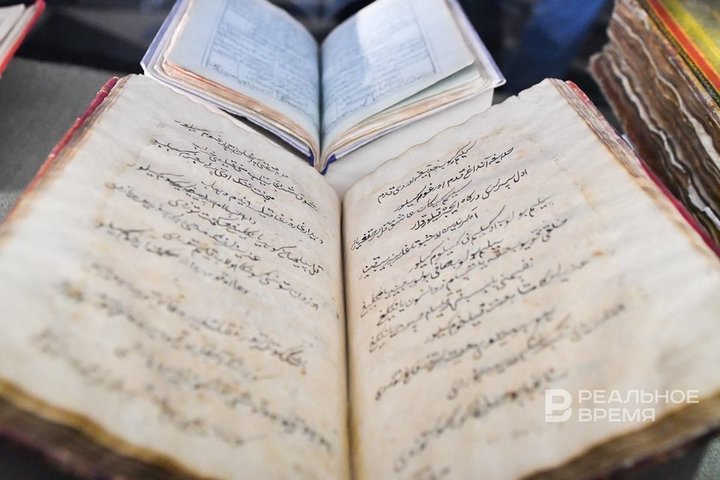How to explain higher mathematics with an apple and a carrot?
The leadership of the World Tatar Youth Forum explained how artificial intelligence can change family life

At Jadidfest festival in the National Library of the Republic of Tatarstan, head of the World Tatar Youth Forum Raynur Khasanov delivered a lecture on how artificial intelligence changed life. The plan for the public speech was also written by AI. Khasanov noted that over the past year, a set of computer programmes that imitate human thinking has made great strides in the Tatar language. Realnoe Vremya publishes the main excerpts of the lecture.
Let's start with kittens
Yes, I prepared for the lecture like this: I connected to AI and asked what could be said on this topic. He presented me with six topics: the role of AI in home life; upbringing and education; impact on home life; emotional and psychological aspects; dangers and limitations; vision of the future. I combined my speech plan with this plan.
AI chats are getting better every year, versions are updated every month. Several years ago, they could not speak Tatar adequately. Now they do it quite well, if not perfectly, then they can already write and speak something in the literary language. By the way, many of the AI products are free, at least for a certain number of requests.
So we ask AI if it knows the Tatar language? “Yes, I know, how can I help you?” A popular direction is a search engine. Let's ask who Raynur Khasanov is.
He writes that I am the chairman of the forum, writes my biography, and indicates the sources. This is convenient when, for example, you are writing a thesis. Of course, you can order the entire thesis for yourself, or you can ask first to make a plan, make a list of sources.
You can immediately start communicating with AI in Tatar, although, of course, the most common languages are English and Russian. But let's try to get a Tatar text from it!
“Write a short story in Tatar about two kittens who moved from a village to a big city.” We get a story about how the kittens' owners bought an apartment and so on. Of course, it's not perfect, but it's good enough for a start. You can expand the story here and then make a storyboard.
“We are making a cartoon now, at some point we lacked ideas, we asked the AI to add its ideas, then it made a storyboard. And on this basis, the animator makes a cartoon. It took him a month to make five minutes, it turns out that this is not an easy task.”

A little about lazy programmers
I am a programmer by degree. We are a lazy people, we do not like to write code ourselves. That's why we have libraries, frameworks. Now we often work with the help of AI, of course, if it writes in Python, C++ and other popular languages.
Let's say we have a website for Tatar Dictation. For those who write it online, the website will check the text for errors. We decided to improve the code. We requested it, received it, I asked to redo it, then sent it to the server, the server crashed, I sent AI an error, it fixed it.
In addition, AI helps me explain some complex things. For example, higher mathematics using an apple and a carrot. You can also ask it a question, for example, if it were a lecturer in higher mathematics, and you were embarrassed to do this in class.
AI helps write official letters. In our forum's Organising Committee, we took a database of such letters, uploaded them. Now we ask for a letter on a certain topic, the secretary checks it, and we send it.
Now voice assistants are appearing, and they can speak Tatar with an accent of the Tatars of Finland. A few weeks ago, I talked to AI as if it were a psychologist: I have such problems, how can this be solved? I spoke for about five minutes. And he told me the sentences. At the same time, the AI is written that it cannot order anything itself.

How to win grants
Artificial intelligence helps us write grant applications. Now, for example, we want to make an analogue of the Tatar service Grammarly, which would correct Tatar texts. I will note that some AI can already correct text in the Tatar language — in terms of spelling, grammar. I would say that it works well 98%. I also do this: the AI writes the text, I upload it again and ask to correct it.
As for the grant, I explained what I needed, and the application was written for me in five seconds, then I corrected it — also with the help of AI. So we made seven applications, three of which have already won. We are waiting for the results of four more!
There was interesting situation with the Arabic script. First I asked AI if he knew Old Tatar. He replied that he could transcribe it. I sent him a photo of the text, he couldn't make it out. Then I asked what letters there were in Old Tatar. So it didn’t understood how to recognise them. I sent the photo again. It didn't work. I asked him to recognise it using the previously acquired knowledge. It managed to do this and translated: “Mazhabs in the world of Islam.”
He couldn't translate the other text accurately, but he was able to guess that it was about a subscription to an outlet.
So he's already useful in this matter. Tatarstan works hard to develop AI. You probably know that the Institute of Applied Semiotics of the Academy of Sciences of the Republic of Tatarstan launched a bot into which people could speak texts. This knowledge is used, in particular, by Speech.tatar website. I think in a year it will be even better.
Just six months ago, communication in Tatar was very difficult. And now even songs in Tatar from AI have begun to appear, which previously sounded quite artificial, with an accent. We can confidently say that with each month, AI will work better and better.